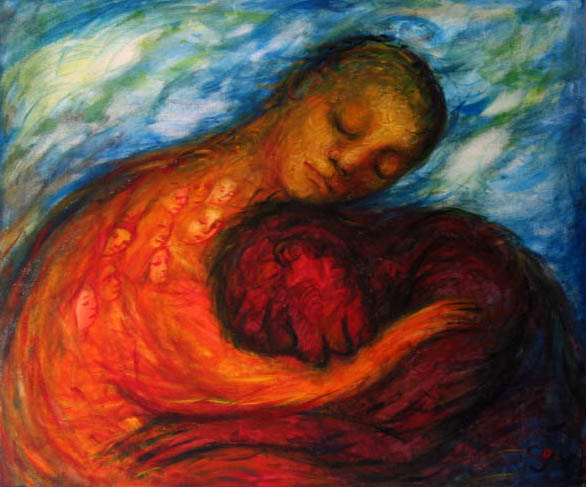Two separate but related articles about forgiveness.
The first, from Good, discusses the medical benefits of forgiveness...
For thousands of years the world's religions have been preaching—if not always practicing—forgiveness. Now the medical community is finding that there are more benefits to letting things go than just better relationships and peace of mind. As the results of long-term studies on the physiological impacts of forgiveness trickle in, the evidence is stacking up behind a single idea: Truly forgiving those who have wronged us is good for our health in myriad ways—it lowers blood pressure, improves sleep, and increases life span.
Medical research on forgiveness is a relatively new field, with the first real study appearing in the late 1980s, but as more and more researchers examine the physiological impacts of forgiveness, the idea that it can be a powerful tool in healing is gaining support. Multiple medical studies have found that people who have forgiven others for a major transgression have lower blood pressure and heart rates when compared to those who have not.The second is a gut-wrenching article to read yet the monumental display of forgiveness is inspiring.
From Sports Illustrated...
The English language has a million words, but only one for the two kinds of forgiveness. This is a major failure. The two kinds may be similar at the molecular level but they are far removed in magnitude. Like a candle flame and a volcano.
The first kind of forgiveness is the easy kind. Someone wounds you, and in time this offender comes to see what he has done. He returns to lay the crime at your feet. And when you reach down to pull him up a sort of charge passes between you, a cleansing force that refreshes both souls.
The second kind of forgiveness is a rare occurrence that becomes rarer as the crime grows more severe. In this case the offender gives nothing. He never comes to you. And when you go to him, he turns you away. This leaves you alone with your open wound and a solitary choice. No one will blame you either way. But the wound is yours to keep, or let go, and that choice may plot the course for the rest of your life.
One night 13 years ago a wound was opened in the dark, in a place deep in the abdomen that surgeons call the seat of the soul. The wound was a subterranean river, and it was not closed off until there was no more blood to lose. Professional athletes have done many terrible things over the years, but this was probably the worst. An unborn boy lay in the dark near the rising lake of his mother's blood, and soon he would join her on the brink of death.
The mother had a mother, and this story is about her.

No comments:
Post a Comment